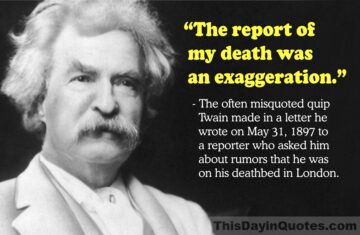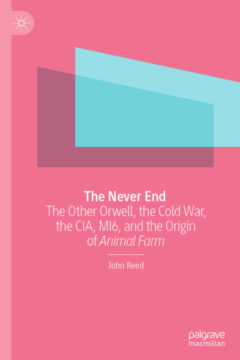by Mark Harvey

The biggest hazard on my one trip to Minneapolis was being invited to too many family picnics and possibly dying from an overdose of mayonnaise. You have to go to Minnesota to really experience what’s known in the vernacular as Minnesota Nice. The term springs from the sincere desire those northern people have that you’ll take a second helping of bratwurst and potato salad, then get home safely, and call your host or your family when you do. It’s kind of wonderful and kind of smothering, akin to having one too many comforters on your bed.
So I don’t think too many of us were expecting Minnesota to be our modern-day Gettysburg, when all those nice people came out onto the streets to fight Trump’s reviled brand of fascism. Minnesota was largely out of my news feed until these past few weeks when the jackbooted thugs from ICE began to tear apart the famously neighborly city of Minneapolis. Occasionally I’d hear about a brutal cold front coming down from the arctic or an exceptional year for the Vikings, but there just weren’t that many sensational stories coming down from the Land-O-Lakes.
Before Trump and Kristi Noem sent their band of thugs up to Minnesota, the people there were busy carrying on what appeared to be, on the whole, enviable lives. Statistics never tell the whole story, but when it comes to quality of life, Minnesota consistently ranks in the top five US States based on metrics like poverty levels, health care, safety, education, and fiscal stability. Its consistently high safety ranking—factors like crime rates, quality of hospitals, quality of roads, and speed of emergency medical services—certainly took a blow when the masked goons dispatched to “make cities safe again,” showed up and wiped their boots on the Constitution.
We all saw the grotesque murders of Renee Good, a young mother, and Alex Pretti, a young ICU nurse, by trigger-happy ICE agents just weeks apart from each other. Even with all the other violence going on in the world—Ukraine, Gaza, and the rest—those murders were hard to watch. Whether it was the stuffed animals in Good’s car or the mournful version of Taps played as co-workers wheeled Pretti’s coffin down the hall of the Vets’ Hospital where he worked, there were poignant emblems and imagery reminding us that those two never should have been shot dead. Read more »


 Noam Chomsky was rumoured to have left us almost a month ago, but he always
Noam Chomsky was rumoured to have left us almost a month ago, but he always
 Twenty years ago, John Reed made an unexpected discovery: “If Orwell esoterica wasn’t my foremost interest, I eventually realized that, in part, it was my calling.” In the aftermath of September 11, 2001, ideas that had been germinating suddenly coalesced, and in three weeks’ time Reed penned a parody of George Orwell’s Animal Farm. The memorable pig Snowball would return from exile, bringing capitalism with him—thus updating the Cold War allegory by fifty-some years and pulling the rug out from underneath it. At the time, Reed couldn’t have anticipated the great wave of vitriol and legal challenges headed his way—or the series of skewed public debates with the likes of Christopher Hitchens. Apparently, the world wasn’t ready for a take-down of its patron saint, or a sober look at Orwell’s (and Hitchens’s) strategic turn to the right.
Twenty years ago, John Reed made an unexpected discovery: “If Orwell esoterica wasn’t my foremost interest, I eventually realized that, in part, it was my calling.” In the aftermath of September 11, 2001, ideas that had been germinating suddenly coalesced, and in three weeks’ time Reed penned a parody of George Orwell’s Animal Farm. The memorable pig Snowball would return from exile, bringing capitalism with him—thus updating the Cold War allegory by fifty-some years and pulling the rug out from underneath it. At the time, Reed couldn’t have anticipated the great wave of vitriol and legal challenges headed his way—or the series of skewed public debates with the likes of Christopher Hitchens. Apparently, the world wasn’t ready for a take-down of its patron saint, or a sober look at Orwell’s (and Hitchens’s) strategic turn to the right. Where I live in Colorado there are unstable elements of the landscape that sometimes fail. In severe cases, millions of tons of rock, silt, sand, and mud can shift, leading to massive landslides. The signs aren’t always evident because the breakdown in the structural geology often happens quietly underground. The invisible changes can take hundreds or thousands of years, but when a landslide takes place, it is fast and violent. And the new landscape that comes after is unrecognizable.
Where I live in Colorado there are unstable elements of the landscape that sometimes fail. In severe cases, millions of tons of rock, silt, sand, and mud can shift, leading to massive landslides. The signs aren’t always evident because the breakdown in the structural geology often happens quietly underground. The invisible changes can take hundreds or thousands of years, but when a landslide takes place, it is fast and violent. And the new landscape that comes after is unrecognizable. My Jewish maternal grandparents came to America just ahead of WWII. Nearly all of my grandmother’s extended family were wiped out in the Holocaust. Much of my grandfather’s extended family had previously emigrated to Palestine.
My Jewish maternal grandparents came to America just ahead of WWII. Nearly all of my grandmother’s extended family were wiped out in the Holocaust. Much of my grandfather’s extended family had previously emigrated to Palestine.